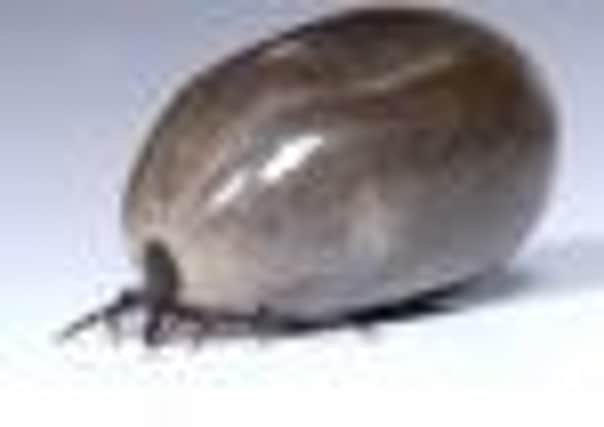Bruce Alexander: More must be done to combat Lyme disease


Ticks are found throughout Scotland, living in wooded or bushy areas or among heather and bracken. They attach themselves to the skin and feed on blood. During feeding, ticks can transmit a range of infectious agents including the one causing Lyme disease or “borreliosis”, which, without prompt treatment with antibiotics, can cause debilitating long-term health problems.
Confirmed cases of Lyme disease are rising rapidly, with Scotland’s chief medical officer reporting an elevenfold increase in the past decade. Unfortunately, it’s notoriously difficult to diagnose and the symptoms are often mistaken for other conditions. Consequently, many sufferers are not tested so the true number of Scots affected is potentially far higher than the 304 cases recorded in 2010.
Advertisement
Hide AdAdvertisement
Hide AdA recent audit of patients at a Perthshire Medical Practice found a ratio of confirmed cases equivalent to 125 per 100,000 people. Applying this ratio across Scotland, there could be around 6,500 people contracting Lyme disease each year, the vast majority going undiagnosed and untreated.
Our own public survey has found almost two in three Scots think the information currently available about ticks and Lyme disease is “inadequate” or “non-existent”. I could also recount many horror stories of people who have spent years coping with this disease and struggling to access effective diagnosis and treatment.
More and more Scots actively enjoy healthy outdoor pursuits. The key to staying safe is to have the equipment to remove ticks properly and to seek a rapid diagnosis if you think you’ve been bitten by an infected tick. Meanwhile, Scottish ministers must do more to inform the public about the dangers and how to stay safe. That way, we can all continue enjoying Scotland’s great outdoors while avoiding the growing threat of Lyme disease.
• Dr Bruce Alexander is a research entomologist and managing director of life sciences company Xeroshield.